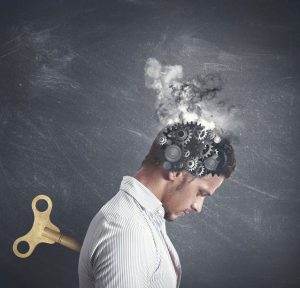On January 27, 2010, I became an uncle.
The day was surreal — not for me, but for my brother, who welcomed his first child into the world at 2:34 p.m.
Immediately after the baby was delivered she began experiencing respiratory distress, and at 2:35 p.m. the doctors and nurses whisked the newborn to the hospital’s neo-natal intensive care unit (NICU). At 2:37 p.m. — while standing in the NICU praying that his baby would hang on — the new father received a call on his cell phone from opposing counsel in a case halfway across the country, where a two-week trial was scheduled to begin in ten days.
This wasn’t just any old case — a seven-year old child with profound disabilities had been raped on a special needs school bus by a twenty-year old serial predator assigned to ride the same bus. The point of the trial was to determine what steps (if any) the school district was required to take to ensure that something like this wouldn’t happen again.
From 2:38 to 3:00, my brother negotiated a settlement in the NICU. To hear him tell it:
“With one hand, I was pressing the phone so hard to my ear that it left an indentation for a week. With my other hand, I was cupping the receiver as tightly as I physically could, so that the lawyer I was speaking with couldn’t hear the instructions the physicians were shouting to the attending nurses. If he had caught wind of the fact that I was standing in the NICU with my new baby, I would have lost any leverage to settle the case, and we almost certainly would have gone to trial. Thankfully, by the way, my wife has no memory of any of this.”
By 3:15 p.m., my niece began to breathe normally. Seven days later, my brother and his counterpart signed a settlement agreement that, among many other things, required the school district to place paid adult bus monitors on all special needs school buses.
I had not yet gone to law school when all this happened, and I recall being extraordinarily impressed with my brother. But now, I realize that almost every lawyer has at least one story like this. The simple fact is that lawyers experience tremendous stress from their vocation. Indeed, the practice of law is riddled with psychological land mines — tight deadlines, job insecurity, career dissatisfaction, pressure to achieve status (e.g, make partner), becoming emotionally invested in cases that may end unsuccessfully, feeling real fear of being chewed out for or embarrassed by a small error — to name just a few.
We experience such severe stress, and have such little discretionary time to address it, that it almost feels natural to reach for expedient but unhealthy solutions to life’s miseries (alcohol, prescription and non-prescription drugs, overly intensive exercise) that mask our problems instead of addressing them.
A group of Princeton graduates is building a valuable tool — called Happy — to help people like lawyers cope with stress and burnout in a healthier way that enables greater personal fulfillment and peace of mind. Their big idea is that a short conversation with a compassionate listener can quickly restore perspective and significantly boost a person’s happiness and health. Happy will soon be an on-demand app that connects callers to everyday people — lawyers, baristas, musicians, teachers, nurses, retirees, etc. — who have proven themselves to be exceptionally empathetic and highly effective. Happy is developing a community of these ‘happiness givers’ who are eager to hear your story, and help you in unexpected ways to find and experience the real happiness that is well within your grasp.
For now you can arrange a free conversation at one of the following links:
http://www.happytheapp.online/
https://calendly.com/hap/30min
By Jeremy Fischbach, Esq., B.A. Psychology, Princeton; J.D., NYU









